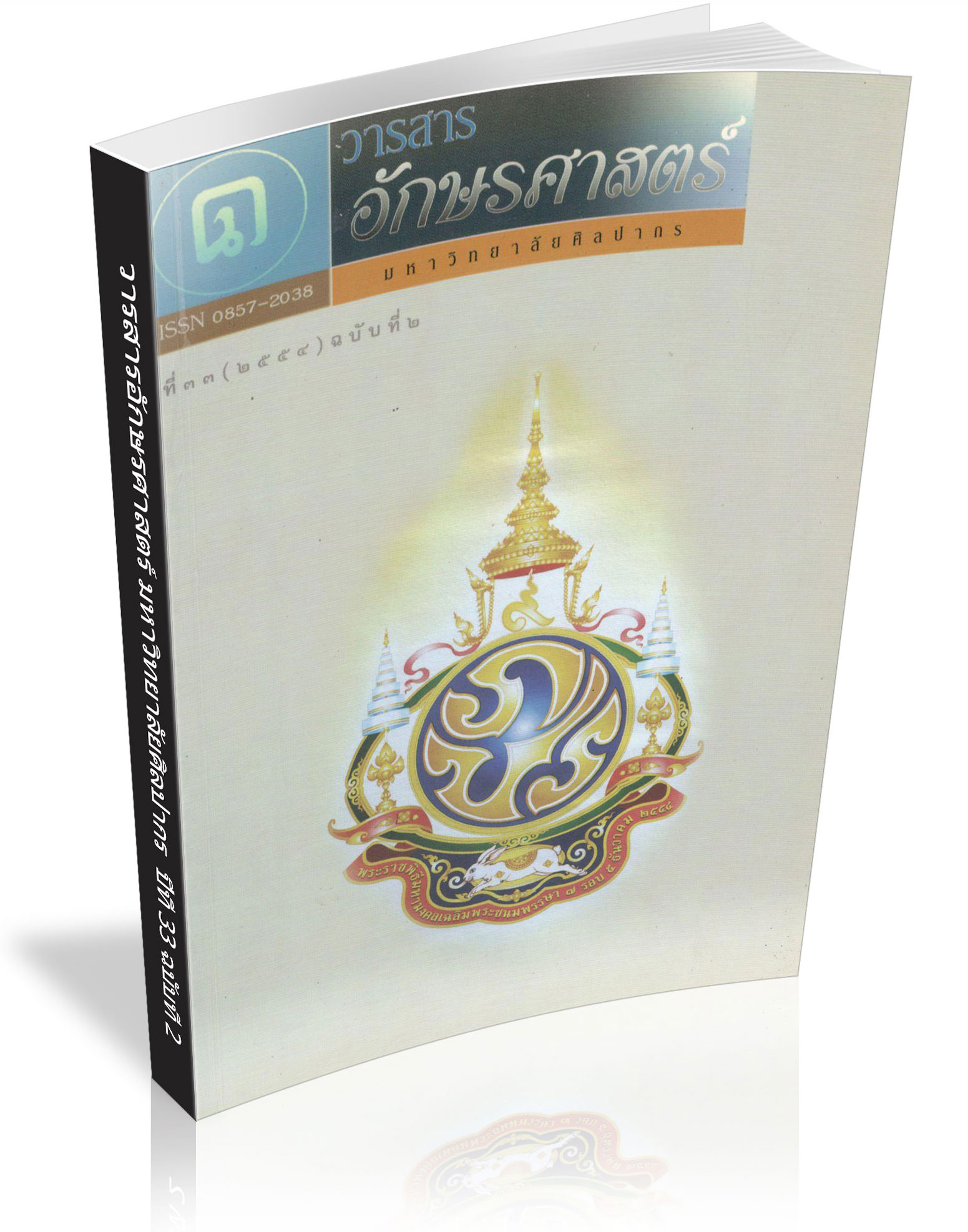Senses : The Foundation of Our Metaphorical Conceptual System
Keywords:
sense, conceptual system, metaphorAbstract
In this paper, I argue that senses play a central role in shaping human being's conceptual system in becoming metaphorical. I provide synaesthetic metaphors as evidence. These are metaphors which use words in a particular sensory domain semantically, but refer to another sensory domain. This phenomenon is widely utilized in our everyday lives and claims to be universal in all languages (Ullmann 1957; Williams 1976; Day 1995; Callejas 2001; Yu 2003; Takada 2008; Wongthai 2009). I further point out that because our perception of senses is metaphorical, our conceptual system later becomes more sophisticated and expands to conceptualize other domains as well. As pointed out by Lakoff and Johnson (1980), metaphor does not only reside in language but also in thoughts and actions. However, I further propose that metaphors also reside in our bodily experience.
Downloads
References
นันทนา วงษ์ไทย. อุปลักษณ์ประสาทสัมผัสในภาษาไทย : การศึกษาตามแนวภาษาศาสตร์ปริชาน. วิทยานิพนธ์ปรัชญาดุษฎีบัณฑิต สาขาวิชาภาษาศาสตร์ มหาวิทยาลัยธรรมศาสตร์, ๒๕๕๒.
ราชบัณฑิตยสถาน. พจนานุกรมฉบับราชบัณฑิตยสถาน พ.ศ. ๒๕๔๒. กรุงเทพฯ : บริษัท นานมีบุคส์ จํากัด, ๒๕๔๖.
Day, Sean. Synaesthetic Metaphors in English. Unpublished doctoral dissertation. Purdue University, 1995.
Johnson, Mark. The Body in the Mind : The Bodily Basis of Meaning, Imagination, and Reason. Chicago : University of Chicago Press, 1987.
Lakoff, George. Women, Fire, and Dangerous Things : What Categories Reveal about the Mind. Chicago : University of Chicago Press, 1987.
Downloads
Published
How to Cite
Issue
Section
License
ผู้เขียนบทความต้องยินยอมในข้อกำหนดต่าง ๆ ของวารสารก่อนส่งบทความตีพิมพ์



